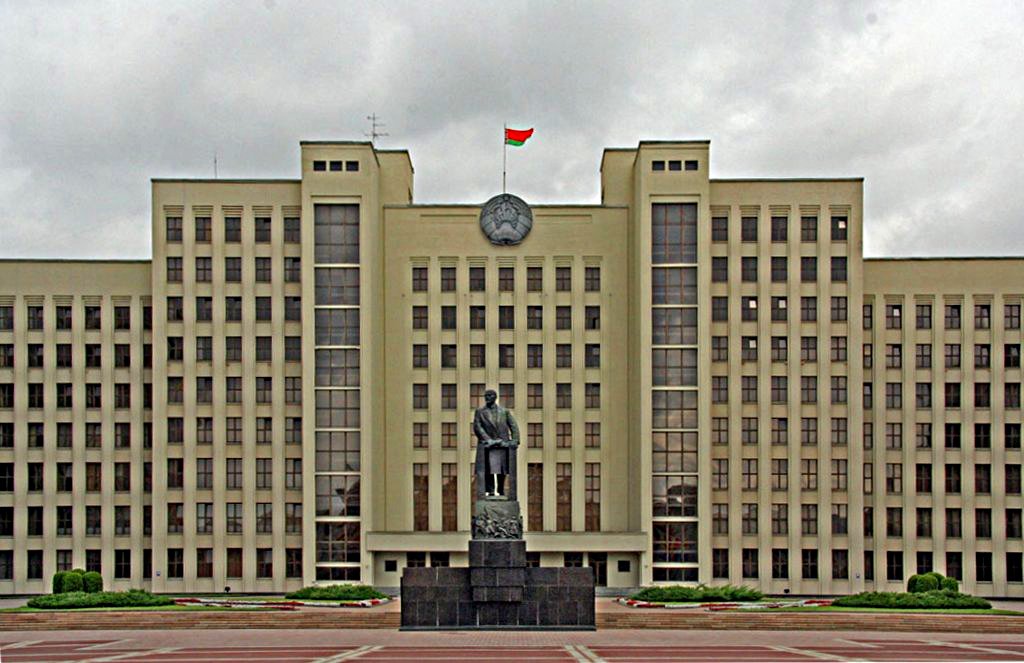Pro-government MPs won 108 out of 110 seats in parliament with the two remaining seats being won by Anna Konopatskaya, a member of opposition party United Civil Party, and an independent candidate, Elena Anisim, who has links to the opposition.
“The declared results of the elections can be neither confirmed nor denied. This also applies to the two representatives of the democratic forces, which were announced as winners in their constituencies and were elected to the parliament. Since the elections in their electoral districts followed the same pattern as in other parts of the country, it is most likely that we are dealing with a purely political decision of the authorities, which aims to show certain internal liberalization in the country.” commented Tatsiana Reviaka, president of the Barys Zvozskau Belarusian Human Rights House.
OSCE/ODHIR, which observed the elections, published an interim report where it highlighted concerns about the electoral system and legal framework, and the election administration.
Conclusions from observations carried out by activists from the Belarusian Helsinki Committee, and the Human Rights Center “Viasna”, both members of the Barys Zvozskau Belarusian Human Rights House, described that “The elections did not meet a number of key international standards for democratic and free elections. First of all, the findings are due to the lack of equal access to state media for all candidates, lack of impartiality of election commissions, facts of abuse of administrative resources in favor of the pro-government candidates, numerous facts of forcing voters to participate in early voting, non-transparency of some election procedures for observers.”
Concerns and reported violations highlighted in Viasna’s analysis included:
Non-transparent vote-counting procedures, and observers being forced to monitor the procedures at a distance. It was also reported that citizens were coerced in to voting early, particularly employees of government-owned enterprises and university students, providing many opportunities for manipulation.
In some polling stations, high numbers of voters voted via a mobile ballot box, with existing procedures providing space for interference and observers unable to check whether voters applied for mobile voting.
“The authorities used every means available to force people to come to the polling stations. If the turnout was not ensured, the election commissions simply rigged the numbers in the protocols, since they had been ordered to do so. Elections have become a system of mathematical manipulations. To hide these manipulations, the vote count was conducted in the manner that prevented anyone to see how many voters voted and for whom they cast their ballots.” Commented Reviaka.
Viasna reports also found that the election campaign failed to attract much public attention. Pro-government candidates enjoyed better conditions for campaigining including access to adminastrative resources such as electronic and print media, while some candidates’ speeches and platforms were subject to censorship as well as obstacles to campaign material publication including unauthorized editing.
The main administrators of the elections are representatives of the five largest pro-government associations. The formation of the election commissions was based on a discriminatory approach towards representitives of the opposition parties with the comissions having a much higher admission rate for pro-government representatives.
“Despite the fact that the elections were marked by a number of positive trends, they did not meet the standards of democratic and transparent elections. Of course, it is important that there were no mass arrests and prosecutions of the participants of the election campaign and other activists, but we cannot say that the political environment was favorable, as many rights are still restrictd – freedom of expression and freedom of assembly, in particular.” continued Reviaka.
Florian Irminger, HRHF’s head of advocacy, also commented:
“The international community tends to be positive when no violence occurs during an election cycle in Belarus, setting the bar of expectations very low. Positive steps are indeed purely cosmetic: While the perception may have improved, the human rights situation has not. Highly restrictive legislation remains in place, allowing the authorities to, at any given time, arrest dissenting voices, human rights defenders, journalists, activists, or anybody else.”
“A more accurate picture of Belarus is presented through the work of the United Nations Special Rapporteur on Belarus, who qualifies the human rights system in the country as one of permission, meaning that everybody needs a governmental permission to exercise a freedom. This international observation of the situation in Belarus is more needed than ever, to ensure that the authorities’ own account is not the only voice heard internationally, in addition to the reporting of human rights defenders.”
The United Nations Special Rapporteur on Belarus, Miklós Haraszti, is scheduled to present a report to the United Nations General Assembly (UNGA) in October. In a previous report presented to the UNGA in 2013, Haraszti said “Authorities in Belarus have not only shown categorical lack of willingness to address electoral rights and ensure free and fair elections, they have also taken multiple steps to limit civil and political rights in electoral processes and repress those who use them without authorisation”.
The Barys Zvozskau Belarusian Human Rights House will hold a press conference on the results of the parliamentary elections on 13 September from 12:00-14:00. There will be a live webcast of the conference.
Representatives of the campaigns “Human Rights Defenders for Free Elections”, “Right to Choose-2016” and Electby will talk about the results of the parliamentary election observation in Belarus, analyze the political implications of the election and answer questions.
Position Paper on Belarus: A system that allows human rights violations at any given time.
HRHF detailed its advocacy position on Belarus in its May 2016 paper: A system that allows human rights violations at any given time.





